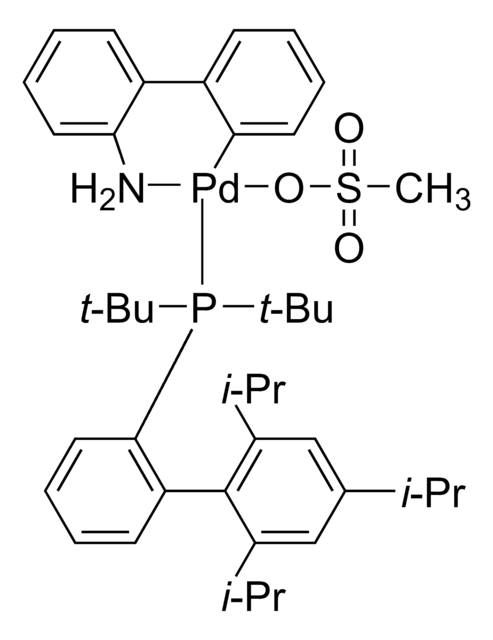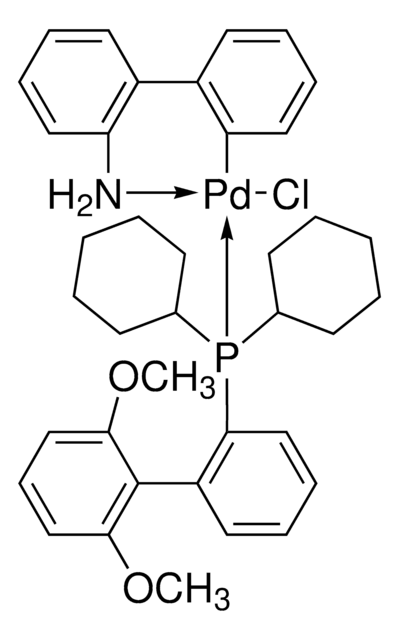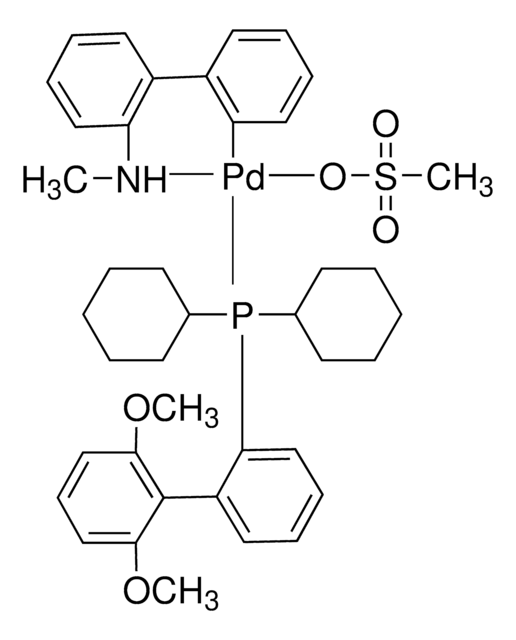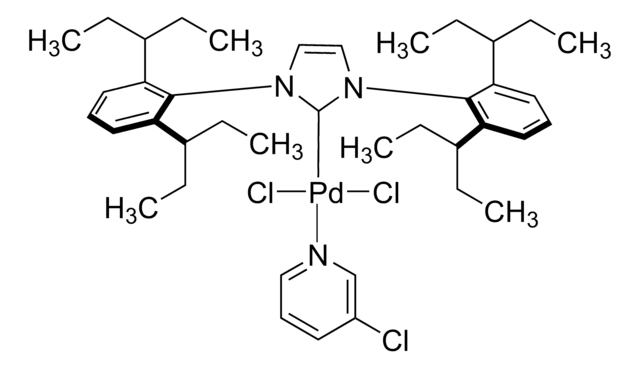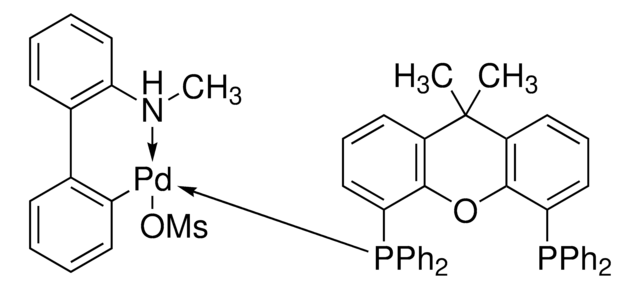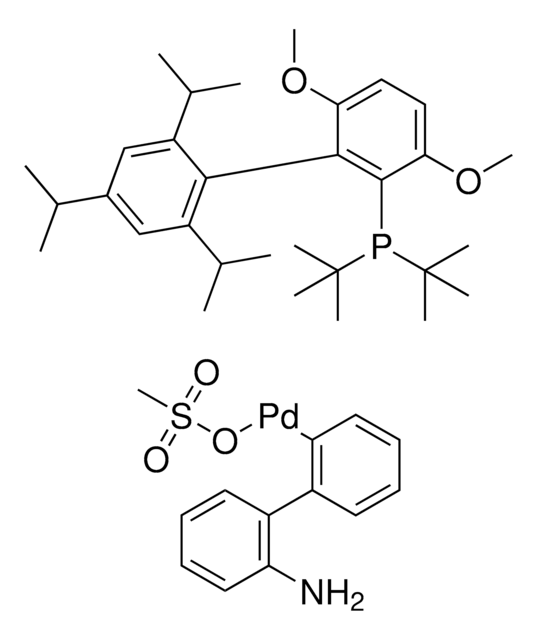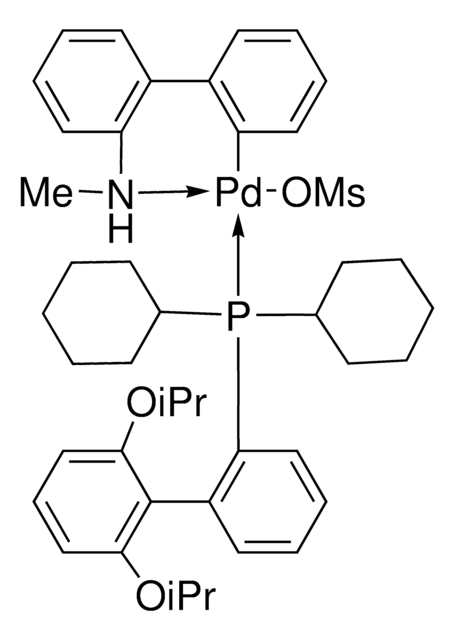763381
XPhos Pd G3
98%, 1:1 MTBE adduct
Synonym(s):
(2-Dicyclohexylphosphino-2′,4′,6′-triisopropyl-1,1′-biphenyl)[2-(2′-amino-1,1′-biphenyl)]palladium(II) methanesulfonate, XPhos-G3-Palladacycle, XPhos-Pd-G3
About This Item
Recommended Products
Quality Level
Assay
98%
form
solid
feature
generation 3
reaction suitability
core: palladium
reaction type: Buchwald-Hartwig Cross Coupling Reaction
reaction type: Heck Reaction
reaction type: Hiyama Coupling
reaction type: Negishi Coupling
reaction type: Sonogashira Coupling
reaction type: Stille Coupling
reaction type: Suzuki-Miyaura Coupling
reagent type: catalyst
reaction type: Cross Couplings
mp
146-151 °C (decomposition)
functional group
phosphine
SMILES string
CC(C1=CC(C(C)C)=C(C2=CC=CC=C2P(C3CCCCC3)C4CCCCC4)C(C(C)C)=C1)C.NC5=C(C=CC=C5)C6=C(C=CC=C6)[Pd]OS(C)(=O)=O
InChI
1S/C33H49P.C12H10N.CH4O3S.Pd/c1-23(2)26-21-30(24(3)4)33(31(22-26)25(5)6)29-19-13-14-20-32(29)34(27-15-9-7-10-16-27)28-17-11-8-12-18-28;13-12-9-5-4-8-11(12)10-6-2-1-3-7-10;1-5(2,3)4;/h13-14,19-25,27-28H,7-12,15-18H2,1-6H3;1-6,8-9H,13H2;1H3,(H,2,3,4);/q;;;+1/p-1
InChI key
NKKHABPORDUWIG-UHFFFAOYSA-M
General description
Application
- Cyanation reaction of heterocyclic halides.
- Coupling of heteroaryl chlorides with polyfluoroaryl zinc reagents.
- Coupling of 2,6-difluorophenylboronic acid with (hetero)aryl chlorides.
related product
Storage Class Code
11 - Combustible Solids
WGK
WGK 3
Flash Point(F)
Not applicable
Flash Point(C)
Not applicable
Choose from one of the most recent versions:
Already Own This Product?
Find documentation for the products that you have recently purchased in the Document Library.
Customers Also Viewed
Articles
All of the preformed catalysts used in the kit are air and moisture stable complexes in their commercially available form.
Multiple tools have been created to ensure your success with kit set up. Start with the more detailed guide to ensure you are comfortable with all of the steps before using the quick guides on the excel worksheet. Remember that while the technique is new, it is still organic chemistry and so the steps will seem easy once you try just one kit. It is just a new way of approaching something you are already very good at.
Materials Included in your KITALYSIS-24PD-2PK High-Throughput Screening Kit
All of the preformed catalysts used in the kit are air and moisture stable complexes in their commercially available form. Once activated by base under the reaction conditions they become sensitive to air. To best enable scale-up success, the use of standard Schlenk technique is recommended.
Related Content
Cross-coupling is a common reaction in organic chemistry for the creation of C-C, C-N, and C-O bonds with the aid of a metal catalyst.
Global Trade Item Number
| SKU | GTIN |
|---|---|
| 763381-250MG | 4061832922836 |
| 763381-1G | 4061832922829 |
| 763381-25G | 4065271045347 |
| 763381-5G | 4061832922843 |
Our team of scientists has experience in all areas of research including Life Science, Material Science, Chemical Synthesis, Chromatography, Analytical and many others.
Contact Technical Service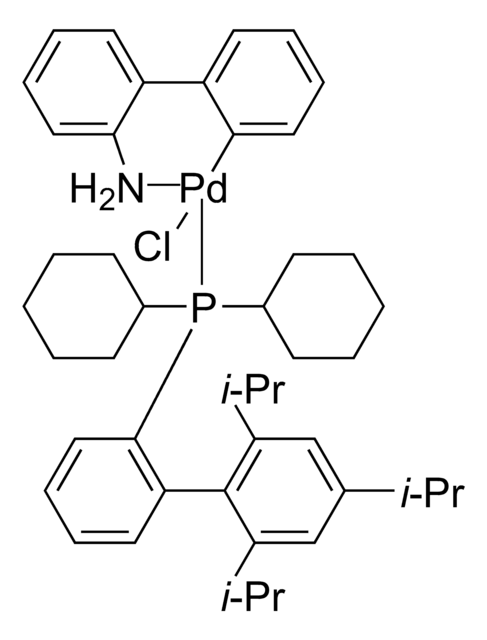
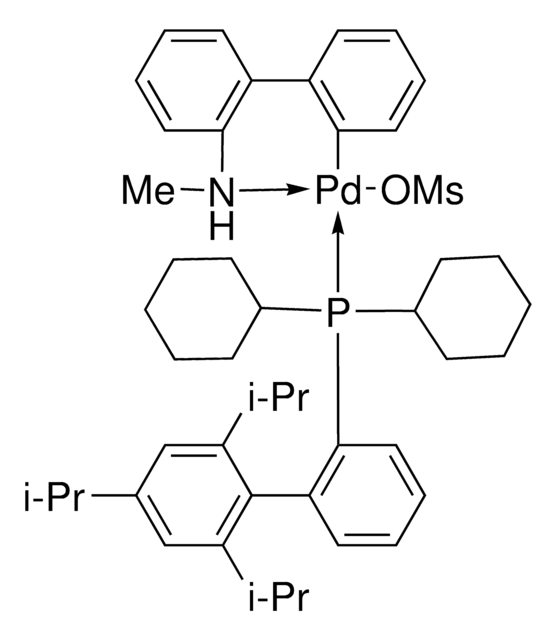

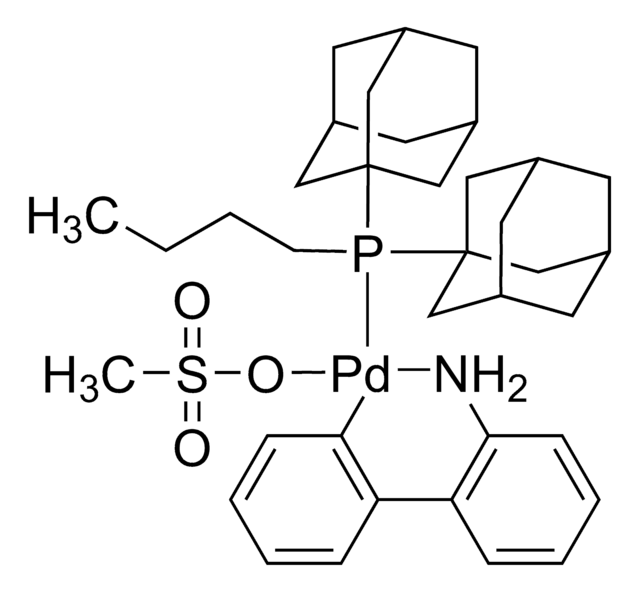
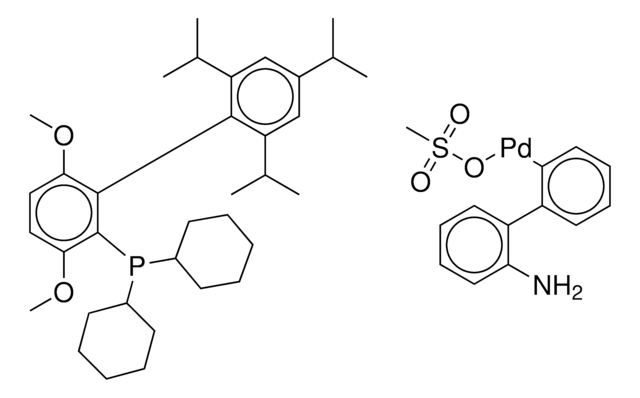

![[1,1′-Bis(diphenylphosphino)ferrocene]dichloropalladium(II)](/deepweb/assets/sigmaaldrich/product/structures/130/734/8846aa26-1858-458a-998d-8c306c13bf0f/640/8846aa26-1858-458a-998d-8c306c13bf0f.png)
